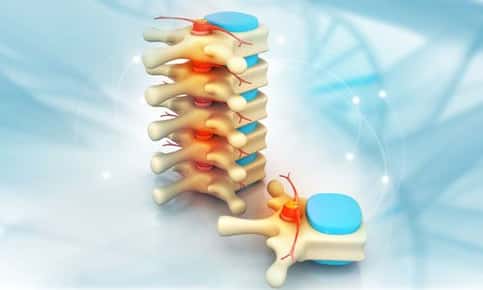
Good spinal alignment means good biomechanical health. Essentially, your spine is the biomechanical center of your body. Your legs are connected to your spine via two large and strong pelvic bones. Your arms are connected to your spine via your shoulder blades, ribs, and numerous strong muscles and ligaments. Spinal alignment supports the functioning of all these associated components. When your spine is in line, then all of your body's mechanical abilities, such as bending forward and backward, twisting and turning, and walking and running are able to be performed at maximal levels.
In addition to the importance of spinal alignment for physical performance, spinal alignment is also a key factor in the functioning of all of your body's physiologic systems. In other words, spinal alignment is a critical element in obtaining and maintaining good health.1 Specifically, your spine houses and protects your spinal cord and 31 pairs of spinal nerves, the lengthy cord-like extension of your brain and the primary branches extending from that main trunk.
When your spine is out of alignment or misaligned, the small ligaments that hold the vertebras together and the small muscles that move those bones become irritated and inflamed. Left undetected, this soft tissue inflammation can affect the local spinal nerves, leading to nerve irritation. The resulting nerve interference disrupts the flow of information between your brain and the regions of your body supplied by the irritated spinal nerves, potentially resulting in loss of function or abnormal function of affected cells, tissues, organs, and organ systems. Nerve interference may cause muscle tightness and pain, as well as signs and symptoms of conditions affecting your gastrointestinal, immune, endocrine, and cardiorespiratory systems. Overall, spinal misalignment and nerve interference may be involved in causing a wide variety of conditions and disorders affecting the musculoskeletal system and other systems of your body.2,3
Regular chiropractic care plays a primary role in helping you and your family maintain high levels of health and well-being. By detecting and correcting spinal misalignments and sources of nerve interference, regular chiropractic care helps optimize spinal functioning. As well, by directly addressing nerve interference, regular chiropractic care helps information flow more freely between your brain and the rest of your body. As a result, all of your physiological systems receive and transmit more timely and accurate information regarding metabolic status, need for nutrients, and other requirements. In this way, regular chiropractic care helps us achieve more complete physiological performance and attain higher standards of overall health and wellness.
1Wieland LS, et al: Yoga treatment for chronic non-specific low back pain. Cochrane Database Syst Rev 2017 doi: 10.1002/14651858.CD010671.pub2
2Coulter ID, et al: Manipulation and mobilization for treating chronic low back pain: a systematic review and meta-analysis. Spine J: 2018 doi: 10.1016/j.spinee.2018.01.013. [Epub ahead of print]
3Yeganeh M, et al: The effectiveness of acupuncture, acupressure and chiropractic interventions on treatment of chronic nonspecific low back pain in Iran: A systematic review and meta-analysis. Complement Ther Clin Pract 18, 2017
